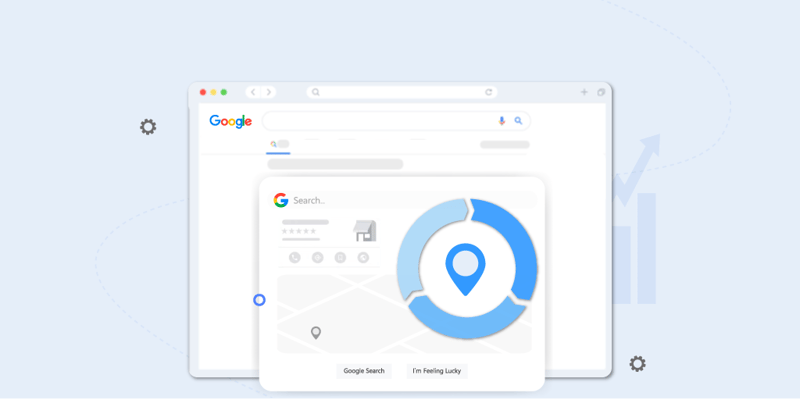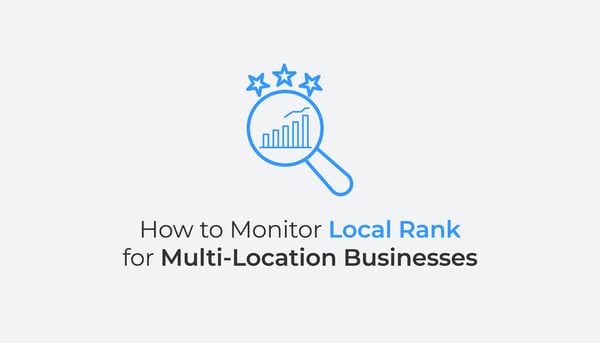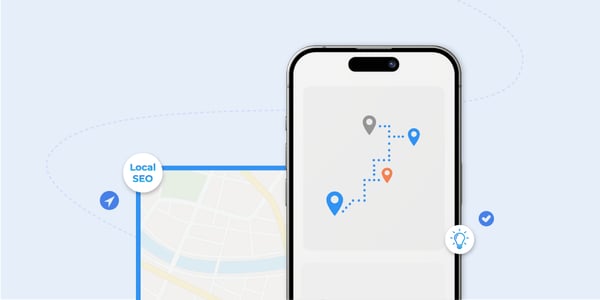With increasing competition, ranking in local search is tougher than ever. Google local algorithm frequently updates to improve relevance, proximity, and prominence in search results, meaning businesses need to adapt continually. Here's a breakdown of the key ranking pillars and actionable insights to help you stay ahead.

Relevance: Matching User Intent and Search Queries
"Relevance refers to how well a local Business Profile matches what someone is searching for. Add complete and detailed business information to help Google better understand your business and match your profile to relevant searches."
Source: Google
1. Optimizing Google Business Profile
There's no doubt that optimising GBP is central to Local SEO success. Make sure your Name, Address, and Phone number (NAP) are accurate across all your locations. Select the most relevant business categories, write a clear business description, and use specific services or attributes that reflect your business.
2. On-Page Optimization
- Use LSI and Long-Tail Keywords: Add semantically related keywords to capture broader search intent and specific, conversational queries.
- Schema Markup: Implement structured data to enhance visibility and relevance in local search results. Google encourages structured data to help better understand your business details.
- Local Landing Pages: Create individual landing pages for each location, tailoring content to local keywords and specific services for better targeting.
- Optimize Mobile Speed: Ensure fast mobile load times, as most local searches happen on mobile devices, improving rankings and user experience.
*Pro Tip: Keep local content fresh by updating FAQs and publishing new location-specific blog posts regularly.
Prominence: Building Brand Trust and Authority
"Prominence refers to how well known a business is. It is also based on information that Google has about a business, from across the web, like links, articles, and directories. Google review count and review score factor into local search ranking. More reviews and positive ratings can improve your business's local ranking."
Source: Google
1. Reviews
Google's local algorithm heavily weighs customer reviews. Businesses with more reviews and high ratings are considered more credible. Respond to all reviews - both positive and negative - to show engagement and commitment to improving the customer experience. Negative reviews should be handled constructively, showing your willingness to resolve issues.
Learn more about effective review monitoring tactics.
2. Backlinks & Citations
Backlinks from high-authority websites elevate your brand prominence. Focus on earning backlinks from local directories, industry websites, and relevant blogs. Accurate citations across platforms like Foursquare and TripAdvisor also boost your trustworthiness.
*Pro Tip: Consider contributing articles to local publications or partnering with nearby businesses to boost link-building efforts.
Local marketing made easy. Sign-up to our Monthly Newsletter below.
Distance: Appearing Close to the User
"Distance considers how far each potential search result is from the location term used in a search. If a user doesn't specify a location in their search, we’ll calculate distance based on what we do know about their location."
Source: Google
Optimizing for Different Search Types
Users perform local searches in several ways, and understanding these nuances can enhance your visibility:
- Non-Geo Searches: Keywords like "restaurants near me" automatically factor in proximity. Make sure your Google Business Profile is fully optimized for general local results so that Google prioritizes your business when users search without specifying a location.

- Geo-Modified Searches: Phrases like "coffee shop in Stockholm" rely on both relevance and prominence. Businesses located near city centers or popular areas benefit most from geo-modified searches, but any brand can improve its chances by ensuring consistent NAP (Name, Address, Phone) details, relevant categories, and location-specific content.
*Pro Tip: Regularly check local search results to monitor your search rankings across different zip codes, identifying areas where proximity impacts your performance the most.
What If I Manage Multiple Locations?
For multi-location brands, optimizing each location’s visibility requires centralized control and localized execution in order to ensure each location's information is accurate across Google, Bing, Apple Maps, and other key platforms. Local marketing automation tools like PinMeTo offer a unified platform to manage and update business information across all locations, ensuring each one is optimized for local search and benefiting from consistent visibility.

To Sum Up
A strong local SEO strategy is essential for multi-location brands looking to boost visibility and attract more customers. By focusing on relevance, prominence, and proximity, and optimizing your GBP, website content, reviews, and citations, you can leverage Google local algorithm and significantly improve your local search presence.
Looking for ways to level up your local visibility?
Give us an overview of your business below and we'll prepare a free local visibility audit
Lily Adamyan, October 10



